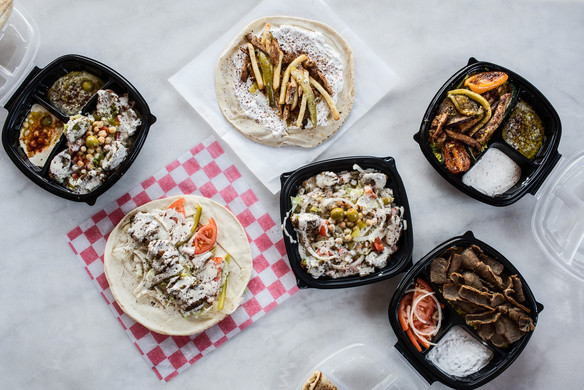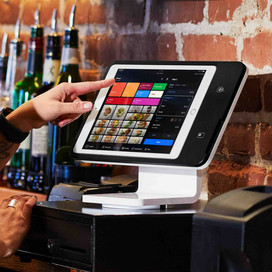Table of contents
Pop-up restaurants are taking the food industry by storm. According to the National Restaurant Association’s What’s Hot Chef’s Survey, pop-up restaurants are the sixth most popular restaurant concept trend — a sure tour de force in dining culture.
Pop-up restaurants have something for everyone. Chefs love the creative freedom. Owners and managers benefit from the opportunity to test and learn. Customers are captivated by the short-term appeal and array of fun food concepts.
But the idea of starting a pop-up restaurant may be a little intimidating. There are a lot of logistics to figure out. Where to start?
Here’s what you need to know about starting a pop-up restaurant to elevate your business.
What is a pop-up restaurant?
A pop-up restaurant is a provisional event designed to showcase your culinary talents at a temporary location. This includes everything from an exclusive one-night food event to a public rooftop food tent open for a few months.
4 elements that make for a successful pop-up restaurant
There are a lot of things to figure out when you’re putting together a pop-up. But these are the four areas that you need to pay close attention to if you want your pop-up to thrive.
The concept
Pop-up restaurants are a great way to test a new concept. You might focus your concept on one food item (like grilled cheese sandwiches) or on a specific type of cuisine (like Filipino food).
When you’re thinking about concepts, you want to check out the competitive landscape and find industry gaps. Is your area missing a specific cuisine? Is there a rising restaurant trend that you think would be popular in your area or with your target diner?
Pair these opportunities with your expertise (and passion) to develop a pop-up concept that foodies will adore. Remember, if your concept and food find fans, there may be opportunities to create a permanent space.
The location
There aren’t many limitations on pop-up restaurants when it comes to choosing a location. You could host a pop-up in another restaurant’s kitchen during off hours. Or you could set up shop on a city rooftop, at an apartment complex, or in an unconventional space.
What you absolutely must have: an open space that will pass health inspections, allow you to abide by restaurant safety practices, and be equipped for cooking operations.
The kitchen equipment and technology
The right equipment and technology can make or break your pop-up restaurant operations. First, decide on all the kitchen equipment needed to successfully create your dish(es). Common kitchen equipment for pop-up restaurants includes:
- Grill, deep fryer, portable brick oven, or stove top to quickly create dishes that will match the high demand generated from a pop-up (this kitchen equipment largely depends on the kind of dishes you’re making)
- Reach-in cooler or freezer to store ingredients and maintain food quality
- Portable steam table to hold food and keep ingredients hot
- Cleaning stations to keep space sanitized
- Cutting tables where you can prepare plates before presenting them to customers.
Due to their short-term nature and exclusivity, pop-up restaurants usually see a lot of traffic, meaning you’ll be taking a lot of payments. Because you want to move fast, make sure your payments system can accept every form of payment, whether it’s magstripe, chip cards, Apple Pay, or Google Pay.
By investing in integrated restaurant POS software, you can take high-volume payments, display tipping options upon purchase, track sales data, manage real-time inventory, get customer feedback, and make informed business decisions moving forward.
The promotional strategy
A successful pop-up restaurant requires a tactical promotion strategy. When laying out the framework, it’s important to first define your goals.
For a first-time event, you might be looking to build your brand and establish a presence. Chefs who have been in the business for a while may be wanting to test a new concept or showcase their skills. Whatever your goals may be, make this the anchor of your promotional strategy.
Once you have a goal, define your target audience (who you want to come to your pop-up) and messaging (what you want them to know). Then pick out the ways you want to deliver those messages to that audience.
Your tactics might include:
- Establishing a social media presence on Facebook, Instagram, and Twitter
- Printing out and posting flyers around the neighborhood
- Engaging in email marketing to alert customers online
- Reaching out to reporters and bloggers to get press coverage
What are the benefits of a pop-up?
Pop-up restaurant events have a lot of advantages over permanent restaurants. They allow first-time restaurant owners or aspiring chefs to build a presence and reputation, or seasoned industry leaders to test new concepts and create a space for creativity and freedom that might be lacking in an established space. Here are all the ways restaurant owners can benefit from opening a pop-up restaurant:
You can test a location.
Whether you’re just starting a restaurant or want to expand your presence, a pop-up restaurant allows you to test out a location and determine the foot traffic.
You can experiment with your menu.
Owners love pop-up restaurants for the chance to experiment. If you have a concept that might not fit into your brick-and-mortar place, you can test it out at your event and get direct feedback from customers.
You can generate hype.
The limited-edition nature of a pop-up restaurant creates buzz and inspires eaters to come check out your establishment ASAP. It creates a sense of urgency that gets customers in the door faster.
You can use it to sway investors.
Nothing entices investors more than proof of concept. If your pop-up gets rave reviews, investors might be more inclined to finance your restaurant and invest in your long-term vision.
You can cut restaurant costs.
Restaurant startup costs can be overwhelming, but they shouldn’t hinder your dream of opening up shop. Pop-up restaurants don’t require a long-term capital investment and can be a cost-effective approach for any restaurateur. In most cases, you’ll sign a short-term lease on a space, pay for the appropriate permits, rent mobile kitchen equipment, and purchase ingredients. This can decrease overhead costs and can be extremely appealing.
You can establish yourself in the food industry.
If a pop-up restaurant is successful and continues to drive customers through the doors, it can very well become an established restaurant.
![]()












